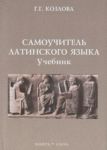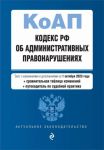1-4 Piano Concerto No. 1 in C Minor, Op. 33
Nikolai Medtner, George Weldon: Philharmonia Orchestra
5-7 Piano Concerto No. 2 in C Minor, Op. 50
Nikolai Medtner, Issay Dobrowen: Philharmonia Orchestra
8 Piano Concerto No. 3 in E Minor, Op. 60 - "Ballade"
Nikolai Medtner, Issay Dobrowen: Philharmonia Orchestra
11-13 Sonata-Ballade in F-Sharp Major, Op. 27
Nikolai Medtner
Recorded: 1940-х
Release: 2014
“I couldn't help feeling that it wasn't just a marvelous pianist playing but a great musician, excellent composer, that his thought and ear had a total control of his fingers and his phenomenal virtuosity, and that it was an inspired pianist – and that feeling brought me particular joy. It is difficult to imagine a more flexible performance not only in terms of pianism but also in terms of exposure of musical, composer's thought of what we call musical substance,” wrote Heinrich Neuhaus about Nikolai Medtner (1880–1951), a Russian composer and pianist of genius. Nikolai Medtner was one of the 20th century greatest musicians who preserved and augmented the tradition of combining composing with performing career (Sergei Rachmaninoff, Alexander Scriabin, Sergei Prokofiev and Dmitri Shostakovich among others). Like Rachmaninoff and Scriabin, Nikolai Medtner was a student of the Moscow Conservatory who made himself known during his conservatory days. He was taught by Pavel Pabst, a pupil of Franz Liszt, and Vassily Safonov, a prominent musician and co-founder of the Moscow pianistic school together with Nikolai Rubinstein. Medtner graduated from the Conservatory with a Small gold medal (a Big one was awarded for graduates who majored in both composition and piano). Safonov declared that Medtner's play deserved a Diamond medal, but the latter's aspiration for composing impelled him to choose a composing path. Medtner's performing career was active during the first years after the graduation. Subsequently, his concerts were rare and wholly dedicated to promotion of his own works. Among compositions by other authors, Beethoven's music took a significant place in Medtner the pianist's repertoire. He was considered one of the best and most original interpreters of Beethoven's music. Medtner's performance of Beethoven's Fourth Concerto in February 1910 conducted by Serge Koussevitzky was an event in the concert life. Beethoven's Appassionata, which Medtner performed for the first time at the age of sixteen, accompanied him throughout his performing career. Also we know what Medtner said about his work on Beethoven's 32 Variations, “It's been sixteen years since I began to learn them, but I still haven't learnt them” (revisiting his favourite compositions, Medtner would perfect their renditions and find new details). As to the performance of his own works, Medtner like no one else could unveil the depth of their concepts. The art of Medtner the pianist was significantly conditioned with peculiarities of his composing career notable for the sincerity of expression, natural intonations and absence of flashy things trading on effect. The strictness of Medtner's play was a manifestation of the highest simplicity of art only accessible to outstanding artists. In contrast to the then popular fancifulness and mannerism, Medtner's performance was “somewhat academic in the highest and best sense of the word” (Heinrich Neuhaus) and contained “not a shade of idle talk and posing” (Yuli Engel). The traits of Medtner's musical gift as a virtuoso pianist and composer are vividly exposed in his three piano concertos. The genre of piano concerto in Medtner's career is the only occasion when the composer turned to orchestra. Medtner's concertos reveal his masterly grasp of a large-scale form, the beauty of melodic and harmonic writing. Medtner's three piano concertos are distinguished with individuality of patterns and music form. So, the music of Concerto No. 1 in C minor, Op. 33 (1914–1917) is strikingly dramatic, at times reaching genuinely tragic heights. In his First Concerto, Medtner rejects the customary three-movement cycle of the genre and creates a single large-scale form, which combines features of sonata allegro with variations. Medtner performed the First Concerto in 1918, in Moscow under Serge Koussevitzky. Concerto No. 2 in C minor, Op. 50 (1920–1927) is full of dance elements and broad cantilena lyricism. When Medtner worked on the instrumentation of the concert, he asked advice of Sergei Rachmaninoff who at the time was composing his Fourth Piano Concerto. After the composers finished their concertos, they dedicated them to each other. The Second Concerto was performed for the first time in March 1927 in Moscow by Medtner and conducted by his brother Alexander. Medtner worked on Concerto No. 3 in E minor, Op. 60, in 1941 and 1942. It was premiered by the author on 19 February 1944 in London within a symphony concert at Albert Hall under Adrian Boult. The concerto was named Ballade and had a direct programme connection with Mikhail Lermontov's ballad The Mermaid as the composer described in one of his letters. A deliberate ballade theme is the main feature of the concerto. As Medtner wrote, “The concerto is named a ballade mainly because of narrative nature of the first sentence written in a completely free form with a poetic and romantic melody.” The Sonata-Ballade, Op. 27, is Medtner's another 'music tale', which the composer thought to be a successful work and often included in his concert programmes. According to the people from the composer's circle, Medtner put an “idea of struggle between light and dark in a human soul” in the foundation of the concept. Firma Melodiya presents the second volume of Nikolai Medtner's recordings made in the late 1940's. The composer performs his three piano concertos with London's Philharmonia Orchestra conducted by Issay Dobrowen and George Weldon. The programme is supplemented with a recording of the Sonata-Ballade.
1-4 Piano Concerto No. 1 in C Minor, Op. 33
Nikolai Medtner, George Weldon: Philharmonia Orchestra
5-7 Piano Concerto No. 2 in C Minor, Op. 50
Nikolai Medtner, Issay Dobrowen: Philharmonia Orchestra
8 Piano Concerto No. 3 in E Minor, Op. 60 - "Ballade"
Nikolai Medtner, Issay Dobrowen: Philharmonia Orchestra
11-13 Sonata-Ballade in F-Sharp Major, Op. 27
Nikolai Medtner
1-4 Концерт № 1 до минор для фортепиано с оркестром, соч. 33: I. Allegro
Николай Метнер, Джордж Уэлдон: Лондонский оркестр "Филармония"
5 Концерт № 2 для фортепиано с оркестром до минор, соч. 50: I. Toccata - Allegro risoluto
Николай Метнер, Исай Добровейн: Лондонский оркестр "Филармония"
8-10 Концерт № 3 ми минор для фортепиано с оркестром, соч. 60 - "Баллада": I. Con moto largamento
Николай Метнер, Исай Добровейн: Лондонский оркестр "Филармония"
11-13 Соната-баллада фа-диез мажор, соч. 27
Николай Метнер
Запись: 1940-х
Год выпуска: 2014
Фирма «Мелодия» подолжает публиковать одну из самых ценных жемчужин своего архива – серию авторских записей Николая Метнера.
«Едва ли можно назвать другого композитора, занимающего в семье русских музыкантов более обособленное место», - писал современник Метнера, музыкальный критик В. Каратыгин. Он родился и вырос в глубоко интеллектуальной семье с немецкими корнями, но давно обосновавшейся в России; более трех десятилетий прожив эмиграции, он до конца жизни оставался русским по духу музыкантом. Музыка Метнера не могла похвастаться большим числом почитателей, но она неудержимо влекла себе таких глубоких, тонко чувствующих (и при этом совершенно различных) художников, как Рахманинов и Мясковский…
В творчестве Метнера органично соединяются традиции немецкой и русской музыкальных традиций. Наряду с Рахманиновым и Скрябиным, Метнер был выдающимся интерпретатором собственных произведений и одним из тех, кто открыл новую эпоху русской фортепианной музыки.
Как пианист Метнер, по словам выдающегося музыканта, пианиста и мыслителя Г. Нейгауза, «создал себе неувядаемую славу… Особую радость доставляло ни на минуту не прекращавшееся ощущение, что играет не только чудесный пианист, но великий музыкант, прекрасный композитор, что мысль и слух всецело руководят пальцами, его феноменальной виртуозностью, что пианизм этот одухотворенный».
Во втором томе антологии звучат три фортепианных концерта Метнера, записанные в 1940-е г. в Лондоне (в записи второго и третьего концерта участвует один из крупнейших представителей русской музыкальной эмиграции – дирижер Исай Добровейн). Также в комплекте представлено одно из самобытнейших сольных произведений композитора – Соната-баллада соч. 27.
1-4 Kontsert № 1 do minor dlja fortepiano s orkestrom, soch. 33: I. Allegro
Nikolaj Metner, Dzhordzh Ueldon: Londonskij orkestr "Filarmonija"
5 Kontsert № 2 dlja fortepiano s orkestrom do minor, soch. 50: I. Toccata - Allegro risoluto
Nikolaj Metner, Isaj Dobrovejn: Londonskij orkestr "Filarmonija"
8-10 Kontsert № 3 mi minor dlja fortepiano s orkestrom, soch. 60 - "Ballada": I. Con moto largamento
Nikolaj Metner, Isaj Dobrovejn: Londonskij orkestr "Filarmonija"
11-13 Sonata-ballada fa-diez mazhor, soch. 27
Nikolaj Metner
Zapis: 1940-kh
God vypuska: 2014
Firma «Melodija» podolzhaet publikovat odnu iz samykh tsennykh zhemchuzhin svoego arkhiva – seriju avtorskikh zapisej Nikolaja Metnera.
«Edva li mozhno nazvat drugogo kompozitora, zanimajuschego v seme russkikh muzykantov bolee obosoblennoe mesto», - pisal sovremennik Metnera, muzykalnyj kritik V. Karatygin. On rodilsja i vyros v gluboko intellektualnoj seme s nemetskimi kornjami, no davno obosnovavshejsja v Rossii; bolee trekh desjatiletij prozhiv emigratsii, on do kontsa zhizni ostavalsja russkim po dukhu muzykantom. Muzyka Metnera ne mogla pokhvastatsja bolshim chislom pochitatelej, no ona neuderzhimo vlekla sebe takikh glubokikh, tonko chuvstvujuschikh (i pri etom sovershenno razlichnykh) khudozhnikov, kak Rakhmaninov i Mjaskovskij…
V tvorchestve Metnera organichno soedinjajutsja traditsii nemetskoj i russkoj muzykalnykh traditsij. Narjadu s Rakhmaninovym i Skrjabinym, Metner byl vydajuschimsja interpretatorom sobstvennykh proizvedenij i odnim iz tekh, kto otkryl novuju epokhu russkoj fortepiannoj muzyki.
Kak pianist Metner, po slovam vydajuschegosja muzykanta, pianista i myslitelja G. Nejgauza, «sozdal sebe neuvjadaemuju slavu… Osobuju radost dostavljalo ni na minutu ne prekraschavsheesja oschuschenie, chto igraet ne tolko chudesnyj pianist, no velikij muzykant, prekrasnyj kompozitor, chto mysl i slukh vsetselo rukovodjat paltsami, ego fenomenalnoj virtuoznostju, chto pianizm etot odukhotvorennyj».
Vo vtorom tome antologii zvuchat tri fortepiannykh kontserta Metnera, zapisannye v 1940-e g. v Londone (v zapisi vtorogo i tretego kontserta uchastvuet odin iz krupnejshikh predstavitelej russkoj muzykalnoj emigratsii – dirizher Isaj Dobrovejn). Takzhe v komplekte predstavleno odno iz samobytnejshikh solnykh proizvedenij kompozitora – Sonata-ballada soch. 27.












































